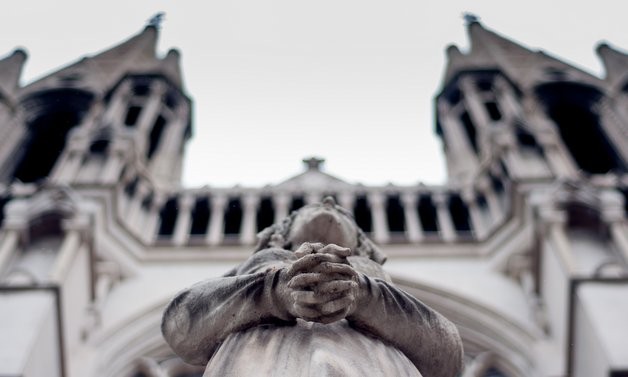“I’m ready for a change – I want to [surrender my life to God] like you. . . how do I start?”
The man who spoke these words couldn’t have reached his 40s yet, but his searching gaze looked as if those eyes had seen a lifetime of futility. “If the Lord does not build the house, in vain does the builder labor. If the Lord does not watch over the city, in vain do the watchmen keep vigil. In vain is your earlier rising; your going later to rest when the Lord pours gifts on His beloved while they slumber.” So runs psalm 127, whose words immediately came to mind. The man was lacking not human effort or will, but the grace of God and an openness to receive it to allow it to change his life. As for his question, “how do I start,” St. John Vianney can point out the answer: prayer.
“Prayer is to our soul what rain is to the soil. Fertilize the soil ever so richly, it will remain barren unless fed by frequent rains.” St. John Vianney knew first hand of long-term struggles in life and the importance of prayer as the means of lifting to God his personal problems along with all his efforts to overcome them. Not a natural scholar, he struggled with the studies needed to become ordained. When these were interrupted by Napoleonic wars and being drafted into the army (at least twice), it only became harder to return and complete them. Yet it was surely his constancy in prayer that transformed all his hardships into sources of sanctity.
Prayer – lifting the heart to God and entering into communion with Him – is meant for every one of us. Regular prayer was Jesus’ own habit, as we see in today’s gospel: “[Jesus] went up on the mountain by himself to pray” (Mt 14:23). We can see also the role that an area of calm solitude plays – Jesus deliberately dismisses everyone, even His disciples, and goes off by Himself. In the midst of our very interconnected lives, such a place of peace and quiet may seem impossible to achieve. This atmosphere of quiet reverence is readily found closer than we think – churches, chapels, and even a small corner of our living quarters can easily lend themselves to this holy silence in which to pray. Once we climb away from the busy-ness of life, particularly from information traffic flow – shutting off our cell phone and computers – once we deliberately suspend our concerns for whatever work or projects clamor for attention on our to-do list, then we are ready to communicate with God.
Once we begin to speak with (and especially listen to) God, we can directly share with Him all that we are struggling with and all that we find joy and gratitude in. St. John Vianney reminds us that in prayer we receive what we need to strengthen us as well as the joy of knowing that we are united with God: “Man has a beautiful office, that of praying and loving. You pray, you love – that is the happiness of man upon the earth. Prayer is nothing else than union with God. When our heart is pure and united to God, we feel within ourselves a joy, a sweetness that inebriates, a light that dazzles us.” Connecting to God in prayer establishes a lifeline through which His grace can reach us, sooth our fears, and divinely supplement our own human nature so as to turn our lives completely towards God.
✠
Image: Andrea Marchetti, Pray







